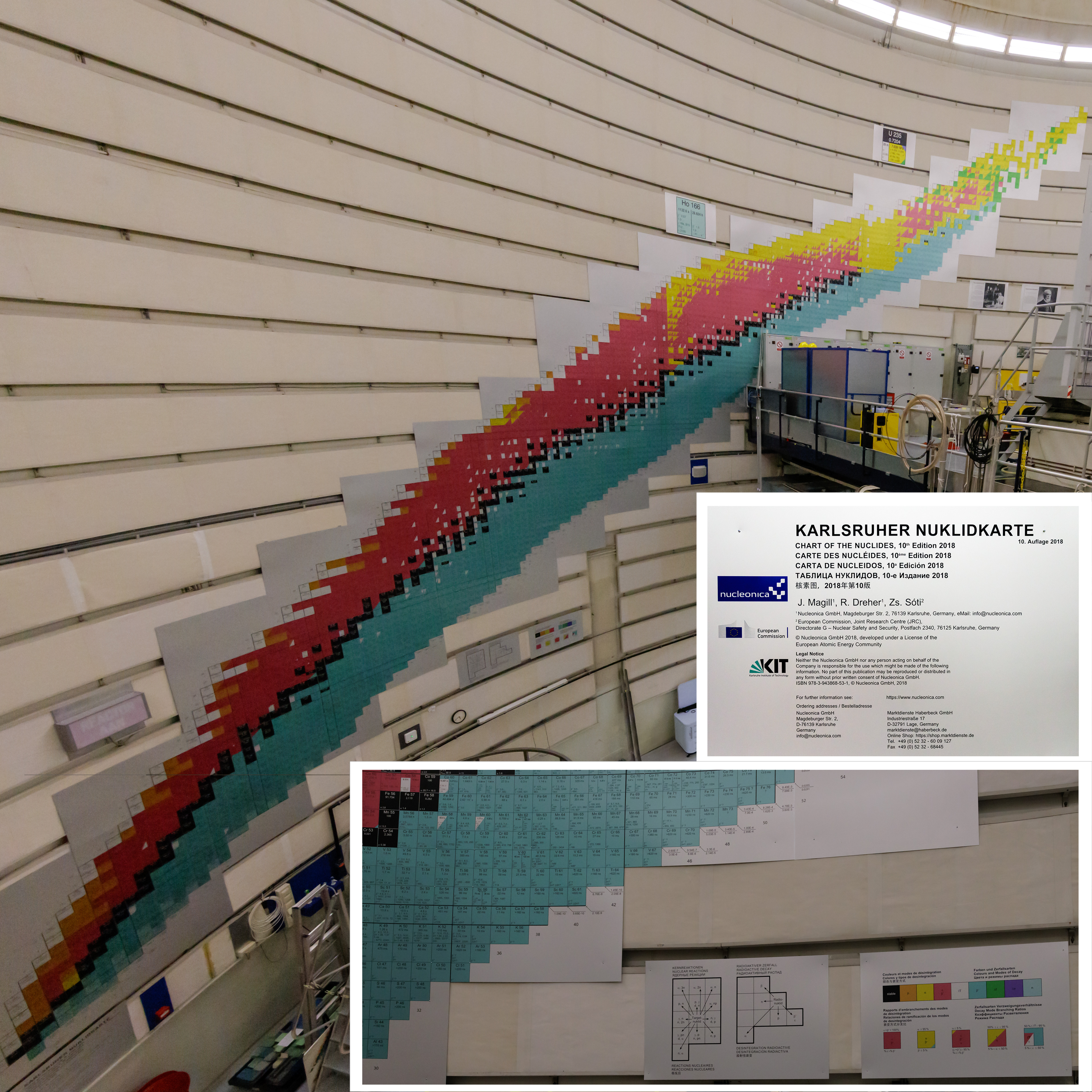Giga-sized nuclide chart
TU Delft Reactor Institute's research reactor, part of TU Delft’s Faculty of Applied Sciences, got a new exterior a few years ago. What cannot be seen from the outside: the inside has now also received a unique covering: the nuclide chart.
If you have a STEM background you will be familiar with the nuclide chart or isotope chart. Many a schoolroom or educational institution has one decorating the wall. This chart was developed in Karlsruhe by Walter Seelmann-Eggebert and his assistant Gerda Pfennig. The full chart is so awkwardly long that it is often cut into four pieces on one image. At the institute, the chart is frequently used in teaching and research because you can read all the neutrons, protons, isotopes and the decay of non-stable nuclides.
Staff at TU Delft Reactor Institute, part of TU Delft Applied Sciences, have taken this chart to a whole new level: they have had this chart printed in its entirety and very large on aluminium panels and mounted on the inside of the reactor. On the one hand, it illustrates the core of the work being done with the reactor and, on the other, it will be very useful for explaining the many tours at the reactor.
The nuclide chart at TU Delft Reactor Institute in figures
This version of the map is unique of its kind. To our knowledge, there is no nuclide map of this size anywhere in the world. The nuclide map is some 19 metres by 13 metres; diagonally from hydrogen to oganesson, the length is as much as 23 metres. The more than 3,000 nuclides are printed on some 100 sheets.
Collaboration
The original idea to depict the nuclide chart in a big way began with radiation expert; Henk van Doorn. The Karlsruher nuclide map (10th edition 2018) was purchased from Nucleonica. They also gave their approval to process this digital map into the final print version. The sheets were printed by Polychromal. They helped in the printing process which was not easy due to the huge scale of the project with all the small details.
TU Delft Reactor Institute
The TU Delft Reactor Institute together with the department Radiation, Science & Technology (RST) has been the Dutch knowledge center for radiation-related research and education for 60 years. With our knowledge and expertise we play an important role in fundamental and applied scientific research.
Research energy, materials and health
The research is in various fields, such as sustainable energy, materials and health, both nationally and internationally. You can for instance think of research in the field of solar cells and batteries and medical isotopes for diagnosis and treatment of cancer. In addition, both undergraduate and graduate education is provided. Such as: Introduction to Nuclear Science and Engineering, Nuclear Chemistry.
TU Delft Radiation Education
TU Delft Radiation Education, part of the TU Delft Reactor Institute, is committed to good and motivating education on Radiation Protection by knowledgeable and enthusiastic lecturers. We provide training and courses at all legally recognised levels. In addition, we provide basic instructions and information for employees who are not required to undergo recognised training. We also integrate our knowledge into the curricula of universities and higher education.
Nuclide Chart
More info on the present owner of the Karlsruhe Nuclides Chart: European Commission's Joint Research Centre. The JRC provides independent, evidence-based science and knowledge, supporting EU policies to positively impact society.
The former owner of the chart is Karlsruhe Institute of Technology (KIT).
